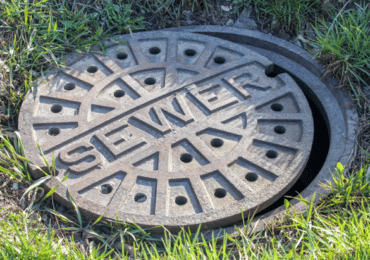When it comes to selling your house, there are countless details to consider, from curb appeal to staging the perfect living room. But amidst the flurry of open houses and negotiations, one crucial aspect often gets overlooked: sewer inspection. It might not be the most glamorous part of the home-selling process, but trust us, it’s one of the most essential. Picture this: you’ve found the perfect buyer, they love your home, and the deal is almost sealed—until a hidden sewer issue springs up, threatening to flush your sale down the drain. In this blog post, we’ll dive into why sewer inspection is absolutely critical before selling your house. Let’s get started.

Identifying Hidden Structural Issues
Sewer inspections play a pivotal role in unearthing concealed structural problems within a property’s plumbing system. Over time, pipes can deteriorate, develop cracks, or suffer from invasive root intrusion. These underlying issues can lead to sewer backups, leaks, or even complete system failure, which can be expensive and disruptive to address.
By conducting a thorough sewer inspection, potential buyers can gain insight into the condition of the sewer lines, allowing them to make informed decisions about the property’s overall structural integrity. As highlighted by the team behind Septic & Sewer Boulder, you will need a professional company to do the job, as they have the expertise and specialized equipment necessary to accurately assess the sewer system’s condition and identify any potential issues that may require immediate attention or future maintenance.
Ensures Compliance with Local Regulations
Sewer inspections are a vital step in ensuring that a property complies with local regulations and codes. Many municipalities have stringent guidelines in place to safeguard public health and the environment. A failing or outdated sewer system can pose a significant risk, leading to violations and potential fines.
By conducting a sewer inspection before selling a house, homeowners can identify any non-compliance issues and take corrective actions if required. This proactive approach not only helps sellers avoid legal complications but also assures prospective buyers that the property adheres to the necessary regulations, instilling confidence in the transaction and preventing future regulatory headaches.
Uncovers Potential Health Hazards
Sewer inspections serve as a critical line of defense against hidden health hazards. Failing sewer systems can lead to the seepage of harmful contaminants like sewage gasses and bacteria into the property, posing a significant health risk to occupants.
These pollutants can trigger a range of health problems, from respiratory issues to gastrointestinal ailments. Identifying such hazards through a thorough sewer inspection is not only crucial for the well-being of future residents but also for ensuring that the property meets health and safety standards.
This transparency underscores the responsibility of sellers to provide a safe living environment and helps buyers make informed decisions to protect their health.
Prevents Costly Repairs for Buyers
Prioritizing a sewer inspection before selling a house can save buyers from unexpected and financially burdensome repairs. Undetected sewer problems, such as blockages, pipe corrosion, or tree root intrusions, may seem inconspicuous initially but can escalate into expensive emergencies.
By uncovering these issues during the inspection, buyers are equipped with valuable information that empowers them to negotiate repairs or concessions with the seller. This proactive approach not only safeguards the buyer’s investment but also ensures a smoother transition into homeownership without the immediate financial strain of addressing unforeseen sewer-related expenses, ultimately fostering a more positive and secure real estate transaction.
Supports Transparent Disclosures
Sewer inspections play a pivotal role in promoting transparency during the home selling process. Sellers who proactively conduct sewer assessments can provide potential buyers with a comprehensive understanding of the property’s condition. This transparent approach builds trust and reduces the risk of post-sale disputes or legal issues arising from undisclosed problems.
When sellers disclose the results of a sewer inspection, it enables buyers to make informed decisions and plan for any necessary repairs or maintenance. This open and honest exchange of information not only facilitates a smoother transaction but also fosters a positive relationship between buyers and sellers, enhancing the overall real estate experience.
Preserves Property Value
A sewer inspection before selling a house is an investment that can significantly preserve property value. Unaddressed sewer problems, if discovered after the sale, can lead to a decrease in the property’s value and marketability. By identifying and rectifying sewer issues in advance, sellers can maintain the property’s worth and attract more confident buyers.
A property with a well-maintained sewer system is more likely to fetch a higher selling price and appeal to a broader pool of potential buyers, which ultimately protects the seller’s investment and ensures a more favorable return on their real estate asset.
Averts Legal Liabilities
Conducting a sewer inspection before selling a house is not just a matter of due diligence; it’s also a means of averting potential legal liabilities. Failing sewer systems can lead to disputes and legal action if undisclosed issues arise post-sale, leaving sellers vulnerable to lawsuits and financial repercussions. By proactively identifying and addressing sewer problems, sellers demonstrate a commitment to ethical and legal standards, reducing the risk of legal disputes.
Furthermore, some jurisdictions may require sellers to disclose any known sewer issues, making an inspection essential for compliance with local real estate regulations. Thus, a sewer inspection can be a safeguard against potential legal entanglements.
Streamlines the Sales Process

Incorporating a sewer inspection into the pre-sale checklist can significantly streamline the entire sales process. By identifying and addressing sewer issues upfront, sellers can present a well-maintained property with fewer potential roadblocks. This transparency expedites negotiations and minimizes the chances of buyers renegotiating or backing out due to unforeseen sewer problems.
Additionally, a clean bill of health for the sewer system can expedite loan approvals and property appraisals, reducing delays that can otherwise prolong the sale. A streamlined sales process benefits both parties, as it saves time and reduces stress, facilitating a quicker and more efficient transition of property ownership.
Conducting a sewer inspection before selling a house is a prudent and proactive step that offers a multitude of benefits. From safeguarding property values and promoting transparent transactions to averting legal liabilities and streamlining the sales process, this essential evaluation ensures a smoother and more secure real estate experience for both sellers and buyers. By addressing sewer issues proactively, homeowners can protect their investments and provide buyers with the peace of mind that comes from knowing they are acquiring a well-maintained property that adheres to local regulations and prioritizes health and safety.

